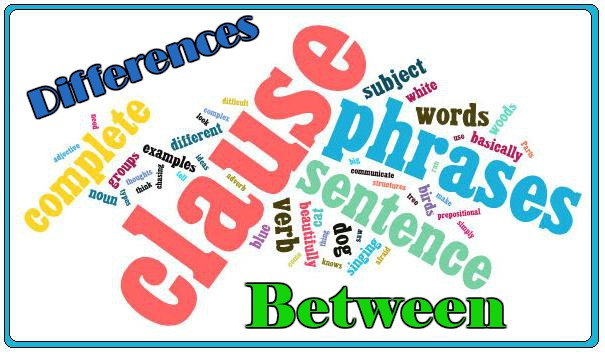TECHNICAL ENGLISH 2
Phrases
Whereas clauses are larger units that always contain at least a subject and a verb, phrases are smaller parts of the sentence.
Sometimes they are essential to the structure of a clause (e.g., a noun phrase that functions as the subject), and sometimes they just provide some extra information (most prepositional phrases).
TYPES OF PHRASES
1.Noun Phrase
A noun phrase is any noun or pronoun along with its modifiers:
The school children
Yesterday’s newspaper
2. Verb Phrase
A verb phrase is any number of verbs working together:
Had been sleeping
Will contact
Verb phrases often contain adverbs that change the meaning of the phrase:
Has never lost
May not trespass
3.Prepositional Phrase
A prepositional phrase always starts with a preposition and ends with a noun or pronoun (and its modifiers) that is called the object of the preposition:
Here are some more examples of prepositional phrases:Through the wheat field
Preposition: through
For more on prepositional phrases, see the section on prepositions.During the year
Despite complaints
4.Verbal Phrases
There are three types of verbal phrases: participial phrases, gerund phrases, and infinitive phrases. Each is explained below.
5.Participial Phrase
Participial phrases start with either a present or past participle. Here are some examples of each.
Phrases with past participles:Phrases with present participles:Lounging by the pool
Chasing a butterfly
Struck by lightning
Driven to succeed
6.Gerund Phrase
A gerund phrase is a present participle (and its modifiers) that acts like a noun. It can take on a variety of jobs in the sentence. Here are a couple of examples:
Practicing helped a lot. (subject)
I love reading. (direct object)
7.Infinitive Phrase
An infinitive phrase is the infinitive and its modifiers:
The infinitive phrase can also function in various ways:To sing
To walk all that way
To give to charity is a noble thing. (subject)
8.Appositive Phrase
An appositive phrase is a phrase that renames an earlier noun or pronoun:
In these examples, the appositive is a noun phrase. But you can use other phrases as appositives too:My best friend, Nick Palacio, loves scuba diving.
Appositives are great for inserting some extra information in a sentence.My dream, to make it to the NBA, is what keeps me going. (infinitive phrase)
9.Absolute Phrase
Absolute phrases are the trickiest to identify. These phrases are not closely connected to the rest of the sentence; they don’t describe a specific word, but modify the whole sentence. They add extra information and are usually separated by commas (or dashes).

Comentarios
Publicar un comentario